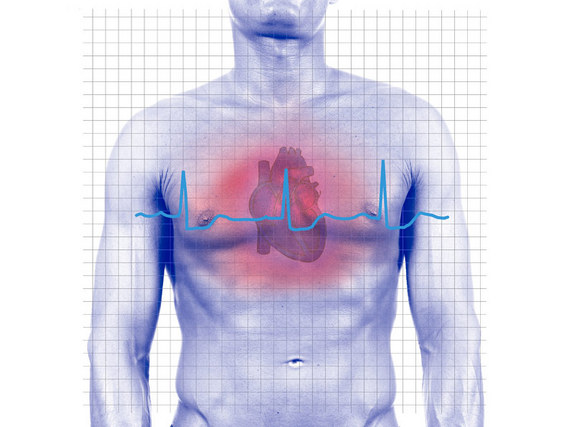Heartbeats Hint at Personality Traits

Get the world’s most fascinating discoveries delivered straight to your inbox.
You are now subscribed
Your newsletter sign-up was successful
Want to add more newsletters?

Delivered Daily
Daily Newsletter
Sign up for the latest discoveries, groundbreaking research and fascinating breakthroughs that impact you and the wider world direct to your inbox.

Once a week
Life's Little Mysteries
Feed your curiosity with an exclusive mystery every week, solved with science and delivered direct to your inbox before it's seen anywhere else.

Once a week
How It Works
Sign up to our free science & technology newsletter for your weekly fix of fascinating articles, quick quizzes, amazing images, and more

Delivered daily
Space.com Newsletter
Breaking space news, the latest updates on rocket launches, skywatching events and more!

Once a month
Watch This Space
Sign up to our monthly entertainment newsletter to keep up with all our coverage of the latest sci-fi and space movies, tv shows, games and books.

Once a week
Night Sky This Week
Discover this week's must-see night sky events, moon phases, and stunning astrophotos. Sign up for our skywatching newsletter and explore the universe with us!
Join the club
Get full access to premium articles, exclusive features and a growing list of member rewards.
Aspects of your personality can be revealed in a heartbeat, literally, a new study from Germany suggests.
The study identified heartbeat "signatures" — wave patterns in the heart's electrical activity — that were linked with personality traits.
People with certain heartbeat signatures scored higher on tests of neuroticism — meaning these individuals tend to experience more negative emotions, such as anxiety and a depressed mood. They also tended to experience fewer positive emotions, including happiness and cheerfulness. Measures of the heart's electrical activity could also be used to predict people's agreeableness, a personality trait that describes how compassionate or empathetic an individual is.
The results suggest such heartbeat signatures may provide a way to measure personality that is more objective that current methods, the researchers say. Personality is commonly assessed using questionnaires, but these are subject to bias — people may choose responses that they think are more acceptable for their gender, for instance, or they may misperceive their own traits, the researchers said.
"We hope that with this method, we have found something that is perhaps more accurate, and more relatable, than many other measures of personality," said study researcher Stefan Koelsch, a professor of biological psychology at the Freie Universität Berlin.
Researchers may also be able to identify heartbeat signatures that are characteristic of certain emotional disorders, such as depression, or of cardiovascular diseases, Koelsch said. Such signatures could one day help diagnose these disorders, or identify people at risk for them, he said.
The study involved 425 university students ages 18 to 33. The students completed personality tests, and had their heart electrical activity measured using electrocardiography.
Get the world’s most fascinating discoveries delivered straight to your inbox.
Personality traits may influence the heart in a number of ways — either through direct nerve connections between the brain and the heart, or through breathing patterns or release of particular hormones, Koelsch said.
Previously, Koelsch and colleagues found a link between certain heart electrical activity patterns and people with cold" personalities, who tend not to show emotion. In the new study, similar patterns were seen among those with high scores in neuroticism and low scores in positive emotion.
Although Koelsch suspects that this type of electrical pattern is not particularly healthy, future research is needed to confirm this. Other studies have linked emotional states such as depression and anxiety to heart disease and high blood pressure.
Eventually, Koelsch hopes to be able to be able to see whether certain interventions, such as listening to music or watching films, change emotional states and the heart's electrical activity, he said.
The study was published Feb. 21 in the journal PLoS ONE.
Pass it on: Your personality traits might correlate with your heart's electrical activity.
This story was provided by MyHealthNewsDaily, a sister site to LiveScience. Follow MyHealthNewsDaily staff writer Rachael Rettner on Twitter @RachaelRettner. Find us on Facebook.

Rachael is a Live Science contributor, and was a former channel editor and senior writer for Live Science between 2010 and 2022. She has a master's degree in journalism from New York University's Science, Health and Environmental Reporting Program. She also holds a B.S. in molecular biology and an M.S. in biology from the University of California, San Diego. Her work has appeared in Scienceline, The Washington Post and Scientific American.
 Live Science Plus
Live Science Plus










